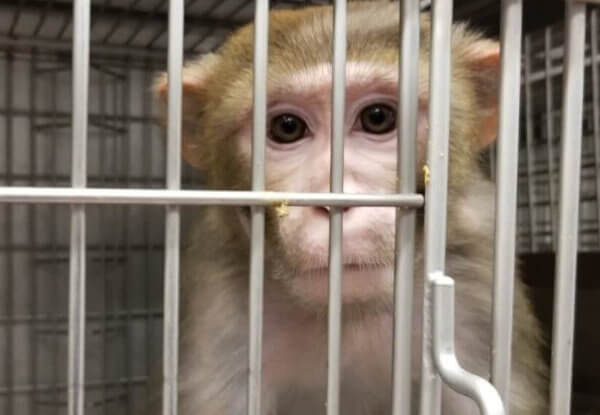Animal Testing: A Case of Philosophical Inconsistency
 Currently, millions of animals are enduring painful and frightening procedures in the name of beauty and science. Animal experimentation is conducted by a number of industries, including the cosmetics and pharmaceutical industries. For the perceived benefit of humanity, animals are subjected to torturous and often fatal experiments. Animal experimentation can involve force-feeding animals chemicals, conducting surgery on them without giving them any painkillers, and even purposefully blinding them or infecting them with diseases. Although no one denies that animal testing is both painful and frightening for animals, the truth is that the moral justifications for the necessity of animal testing just don’t hold up to scrutiny.
Currently, millions of animals are enduring painful and frightening procedures in the name of beauty and science. Animal experimentation is conducted by a number of industries, including the cosmetics and pharmaceutical industries. For the perceived benefit of humanity, animals are subjected to torturous and often fatal experiments. Animal experimentation can involve force-feeding animals chemicals, conducting surgery on them without giving them any painkillers, and even purposefully blinding them or infecting them with diseases. Although no one denies that animal testing is both painful and frightening for animals, the truth is that the moral justifications for the necessity of animal testing just don’t hold up to scrutiny.
Proponents of animal testing argue that the benefits outweigh the harm done to animals and that we have the “authority” to inflict such harm on them because they are not “morally equal” to us. Initially, this may seem like a compelling argument. If testing a drug on someone who isn’t morally relevant will eventually result in saving human lives, isn’t it worth the pain that the morally irrelevant being will suffer? In actual fact, though, there is no morally relevant feature to distinguish humans from animals when it comes to considering whether it is acceptable to make them suffer.
When considering the interests of humans, the only factor we usually take into account is their sentience. Because of our consciousness and our ability to experience emotions and physical sensations, we generally agree that to harm another person is morally wrong. We don’t judge whether it is wrong to punch someone based on their relative intelligence or some other such factor. We judge that it is wrong because they are sentient and it will hurt them. This reasoning applies equally to members of other species. Their apparent level of intelligence is simply not relevant to moral considerations. To highlight this point, consider the hypothetical case of a human who is severely mentally disabled and possesses an intellectual capacity equivalent to that of a rabbit. Would we find it any more acceptable to harm this person than we would any other human? I would hope not. To give our own species priority over others based on nothing more than our own prejudice is simply unacceptable. To paraphrase the well-known moral philosopher Peter Singer, in their capacity to suffer, animals are our equals.
In light of the logic of this argument, some may still support animal experimentation on the basis that the benefit is proportional to the harm done, however immoral it may be. Again, this argument doesn’t make any sense. Because other species are physiologically different from humans, results from animal tests are often inaccurate or irrelevant when applied to humans. So actually, the greatest good would result from testing on other humans, something which most find repugnant. If we truly believed that the benefit outweighed the harm, we would not restrain what we do to other humans. It’s also true that the amount of suffering that animals experience in laboratories vastly outweighs the progress made from the test results.
Ultimately, the case in defense of testing on animals doesn’t stand up to philosophical scrutiny. As we continue to eradicate prejudice from our society and strive for a more just world, we must also include other species in our efforts. With so many alternatives to animal testing that are both more accurate and less expensive, we really have no reason to continue to subject sentient beings to such torture.
Post written by former PETA Asia intern Alyssa Scott









